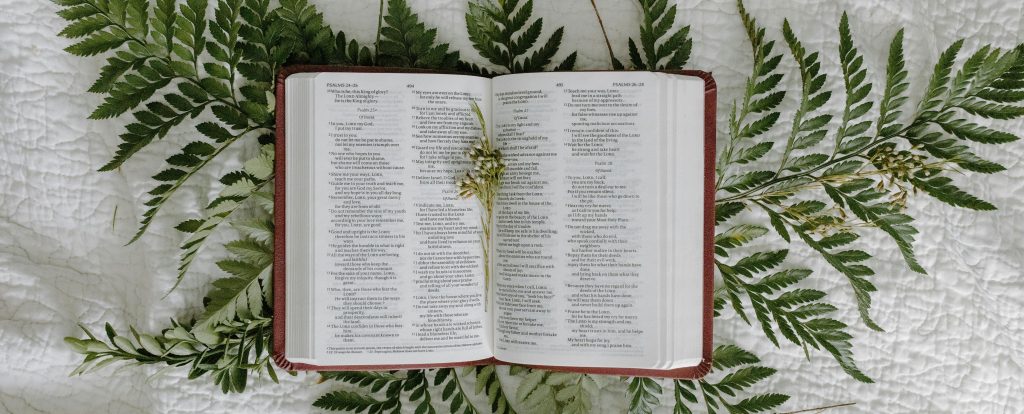
Jason Forbes
Disability Advocate

Zechariah preached to those who had returned home from exile in Babylon – the same exile that Jeremiah had anticipated. While in exile, God’s people would have remembered the times spent in the temple, hearing about God in both word and deed (Ps 137). They would have thought fondly of their devotion towards the Lord and passed on their memories to the next generation who were born during the exile in Babylon. All would have longed to relive those times of devotion.
Coming home to Jerusalem after the exile, the older generation would have been excited to enjoy their times in the temple once more and the younger generations looked forward to hearing about the Lord for the first time. So, their disappointment can be well imagined when they came to their beloved city only to find a wasteland and coming to the site of the temple only to be greeted by a pile of rocks. As they looked around, they could see as far as the horizon, for there were no city walls to protect them from bandits, raiders, and invading armies.
So much for that homecoming celebration in the temple – it didn’t exist! What was the point of rebuilding the temple? It was going to take years to rebuild it. With no city walls, they were easy pickings for anyone who fancied them! Their devotional life to God was completely disordered. Any aspirations of rebuilding seemed futile and meaningless.
In response to this disorder, Zechariah says something incredible, even outlandish. He basically tells the people that the Lord is going to create order from disorder. The temple is a pile of rocks, there’s hardly a building left standing, barely a city wall to be seen, and God’s going to do something good!? Now, after hearing the other visions Zechariah has had, you might be thinking Zechariah has fallen out of his tree once too many times. What Zachariah says is nuts! It’s incomprehensible. The best thing to do would be to pack your bags and head back to Babylon.
But Zechariah hasn’t fallen out of his tree, and neither is he packing his bags. Because he knows who the Lord is. He knows that the Lord is the one who stretched out the heavens, founded the earth and formed the spirit of a person and put it in them (Zech 12:1). Zechariah is reflecting on God’s creative acts in creation, and he understands that the Lord creates order from disorder for the entire cosmos. So, the disorder of a city and its temple should be no problem at all to bring to order.
It’s on this basis that Zechariah begins to say the most incredible things. Zechariah says that even though Jerusalem will face opposition from the other nations, it will be the other nations that come off second best. Just like when someone tries picking up something heavy and all they end up achieving is hurting themselves. That’s basically what is going to happen to anyone who attacks God’s people (vv. 2–3). There’ll be an utter collapse of offence strategies. Horses will be spooked, and their riders won’t know what’s going on – they’ll be mad (v. 4).

If you have seen a spooked horse, you can imagine the commotion. I was riding my bike in a country area one day when I saw a horse being walked by a woman. I slowed down so I wouldn’t spook the horse, but I spooked it anyway. It took some doing for the woman to bring the horse back under her control. Imagine that happening to a whole cavalry. As one horse becomes spooked, so does the next one, and the next one, and the next one as God strikes each horse with blindness, and their riders won’t have a clue what’s going on. But God’s people will know that is God who is creating the commotion (v. 5). The way that God’s people will endure won’t be through human ingenuity, or anything to do with themselves. It will be entirely of God’s doing.
Not only this but God’s people are going to be too hot to handle (v. 6). If you play with fire, you’ll be burned, and so will anyone who opposes God’s people. Not that God’s people will be looking to burn people. Zechariah isn’t giving people a license to be vindictive. That’s not the point. The point is when God’s people are in proper relationship with him, when they are devoted to him, they cannot be overcome.
So, what is this relationship that God has with his people? It’s one of salvation. It’s a relationship where God claims a people for his own. They belong to God for his glory. To mess with something owned by someone is to mess with the person themselves. In a healthy parent-child relationship, if someone were to mess with the child, the parent will feel messed with and respond accordingly because the parent owns the child. God owns his people, and those who would mess with God’s people need to really understand that they’re messing with God. So, even those among God’s people who are the most vulnerable will be invincible, like a mighty warrior because of their relationship with God (vv. 8–9).
What will give God’s people such invincibility? Here’s the most mind-blowing part. Zechariah says that God’s people will be invincible because they are going to have their sin taken away. Zechariah sees a fountain made available to God’s people that will cleanse them from sin and uncleanliness (13:1). This cleansing will be available through the grace and pleas for mercy that will be poured out when God’s people look on God whom they have pierced resulting in death and mourn (12:10–14). They will have remorse for what they have done and turn to him.

This anticipated the time when people learned that they had a hand in the killing of God’s Messiah. Filled with grief, they repented and were baptised for the forgiveness of their sins (Acts 2:36–41). The effect of this is that no charge can be brought against God’s people because God has covered their sin. John makes the connection to Jesus who is also identified in his gospel as taking away the sin of the world (John 1:29; 19:37).
This is not to say that those who are devoted to God will not suffer. To the contrary, Zechariah anticipates a time when God will judge the whole world (Zech 14). Yet, the Lord’s judgement starts with his people (vv. 1–3), and half the people will be exiled. Given that the those who remain in Jerusalem will not be “cut off”, that is excluded from the covenant, those who do go into exile will be excluded.
That the Lord goes into battle against the nations suggest that those who remain will be attacked and forced to flee. The reference to the Mount of Olives being split in two may be perplexing to modern readers (v. 4). If attacking armies typically came from the west via the plains of Canaan, then the people’s only option would be to flee east. The difficulty is, to flee east, people would need to descend into the Kidron Valley only to climb up the Mount of Olives where they would have been even more vulnerable to enemy attacks as they ascended. By splitting the Mount of Olives and creating a valley, the Lord creates for his people a safe means of deliverance (v. 5). So, the Lord’s people may still suffer, but they won’t be overcome.
Even though the exiles returned home to a wasteland and a temple that was no more than a pile of rocks, Zechariah knew that God creates order from disorder, and their devotional life would be made into something so much more than what they had before they went into exile.
There may be areas in life where we don’t feel safe to practice our faith and remain devoted to God. Whether at work, school, university or college, among our friends or even amongst our family. Perhaps we worry that we’ll be asked a question that we can’t answer, or be ridiculed for thinking differently, or not joining everyone else in what they’re doing. This can make us feel vulnerable. We can feel our faith becoming disordered, and quite frankly, it just might be easier to pack up our faith and go back to whatever it was that we were doing before.

Yet, God promises through Zechariah that even the most vulnerable who are faithful to him will be invincible, like mighty warriors. Yes, we might take some knocks, and what we endure may be unpleasant. But God creates order from disorder, and the order that God creates will be far superior to anything we’ve had before. We’re reminded in the New Testament,
Who shall separate us from the love of Christ? Shall tribulation, or distress, or persecution, or famine, or nakedness, or danger, or sword? As it is written,
“For your sake we are being killed all the day long; we are regarded as sheep to be slaughtered.”
No, in all these things we are more than conquerors through him who loved us. For I am sure that neither death nor life, nor angels nor rulers, nor things present nor things to come, nor powers, nor height nor depth, nor anything else in all creation, will be able to separate us from the love of God in Christ Jesus our Lord. (Romans 8:35–39)
God will create order from disorder so we can remain devoted to him.
